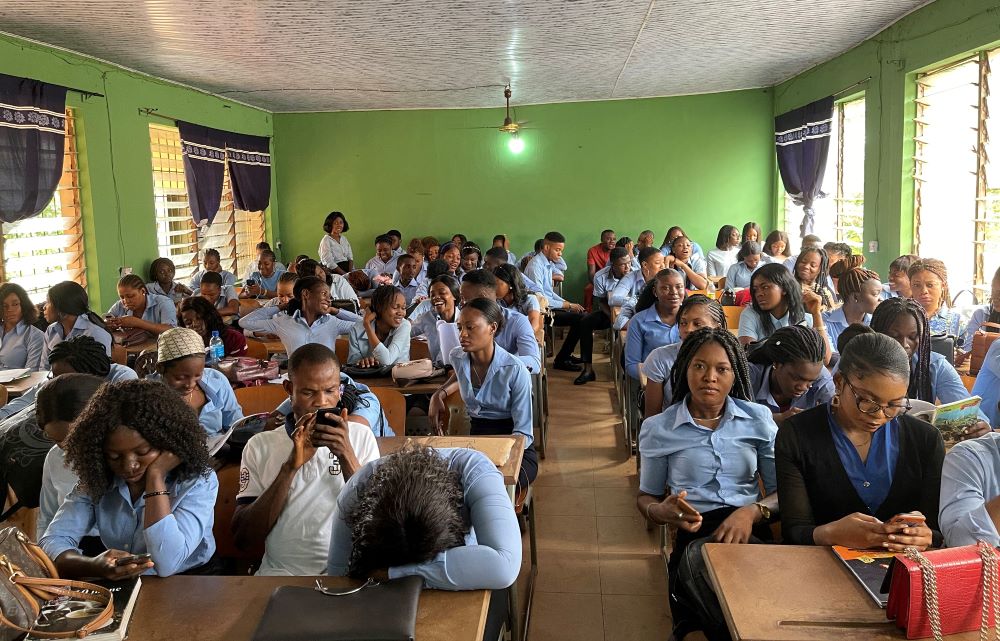(Header Image source: TechCabal)
By Otomewo Oritsejolomi Joshua
The day had barely started but Chidera was already tired. Already running late for a class with a strict lecturer that allowed no one into the lecture hall after him. But this was the least of her problems. She had just emptied her account to get a textbook that was necessary to pass a particular course. And she still had other challenges; she was avoiding her class rep because she hadn’t paid her contribution for a class project. Also, the school fees deadline was fast approaching and there was no hope of any money coming in anytime soon. She was flat broke.
Almost every student can relate to Chidera’s story, at some point in school you must have been broke. Unable to even feed yourself.
Financial struggles have become a constant of the Nigerian university experience leading many students to take drastic actions like Adeola, the final year student of Lagos State University who committed suicide when she couldn’t pay her school fees.
Since 2020 the economy of the country has been on a steady decline, according to the IMF the inflation rate is now 16% after a 13.2% rise last year. Prices of goods and services have skyrocketed without a corresponding increase in income and students are one demographic that bear the brunt of this problem.
For Sophia a 300 level law student of the University of Lagos, this economic hardship has led her to become more frugal in her spending: “In 2019 I used to eat out a lot because it was convenient, but I can’t afford such luxuries anymore, this pack of food that would cost 300 naira now goes for 700 naira, and even then the quality and safety of the food is questionable. So I don’t bother buying food again, I cook everything I eat. Even transport fares are now too expensive. On the days I have just one class, I don’t go to school. Can’t afford to waste money on transport like that. But it’s seriously affecting my academics.”

Being broke is an unsavoury experience but students are forced to deal with it. Financial struggles have made many students develop an entrepreneurial side in a bid to fend for themselves. Taking to freelancing, starting side hustles and small businesses to help alleviate this problem. Every other day someone is launching a business or sending you WhatsApp broadcast messages to help promote an existing one.
Taiwo, a 300 level student of the Lagos State University, started a mini barbing shop to fend for himself, “The money my parents gave me wasn’t taking me to the end of the month, so I got a battery operated clipper and I went around my hostel advertising my services. Then I set up a chair in front of one of the mirrors in the hostel and give haircuts for about half the price at professional barber shops. It was difficult at first but slowly I started making some money. It’s not much but it is enough to get by.”
While starting small businesses are a solution to financial struggles, they also serve as a distraction from the primary purpose of being in school and many find it hard to combine running a business and maintaining a thriving academic life.
According to Taiwo, “My schooling has suffered since I started this business. I miss a lot of classes to attend to customers. One time a lecturer decided to give an impromptu test and I missed it, but what can I do? Na person wey don chop dey read book.”
The underfunded Nigerian educational system offers little or no financial support to students. Educational support programmes like student loans, endowments, bursaries and scholarship schemes are almost non-existent and the few available ones have very stringent requirements to qualify and even then students are still owed.

A 300 level student of Unilag who pleaded anonymity said she is still being owed her endowment, “Every year each first class student is entitled to 50,000 naira at the end of the semester. I’m in 300 level and I’ve still not received the endowment for 100 level.” In spite of these problems there has been talk of the government raising fees across all federal universities as it cannot afford to subsidise education any longer.
Financial stability is a major factor that determines whether people get access to a tertiary education but as the economic situation of the country worsens and many more people slide into poverty, many students are losing their chance of completing their education.








